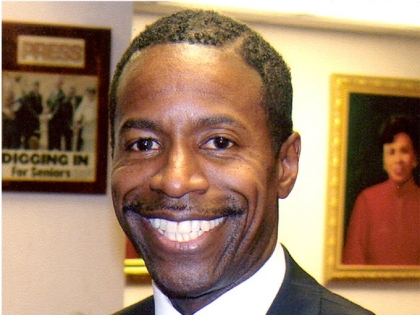
Senator Smith Urges NYC To Halt Its Senior Service Restructuring Plan
Malcolm A. Smith
March 29, 2008
Changes to the current process could mean closure of senior centers, fewer service-providers and longer contracts.
State Senator Malcolm A. Smith (D-St. Albans) today called on the New York City Department for the Aging (DFTA) to delay the implementation of a new modernization proposal for citywide senior citizen centers. Smith urged City officials to find a new course of action to avoid cuts to senior services, including food-delivery to seniors.
"The City's proposed "Modernizing Aging Services" concept could place our seniors at-risk by trimming down essential services while locking the City into long-term agreements without adequate public input," said Senator Smith. "We can't jeopardize the health, nutrition and quality of life of our seniors in an effort to save money. I urge the Mayor to reverse this decision now. Senior citizens deserve our strongest support and advocacy."
In late January, the DFTA released two concept papers outlining its plans for redesigning two programs of New York City's senior services system. The first was for contracts to manage City-funded senior centers, of which there are currently 325 throughout the five boroughs with an annual budget totaling $94 million. The second was for home-delivered meals which the City currently provides for more than 15,000 homebound seniors through a network of 97 community-based providers.
Under the new plan, local senior center vendors would compete against city-wide competitors which would negatively impact the quality of services provided for senior citizens in New York City, including the delivery of hot meals for home-bound seniors.
"As I continue to meet with community-based providers and advocates, few are optimistic about the new restructuring plan," Smith said. "There is some concern that seniors will fall through the cracks. We agree that all 325 senior centers throughout the City should not be subject to a Request-for-Proposal process without knowing the true impact on seniors."



